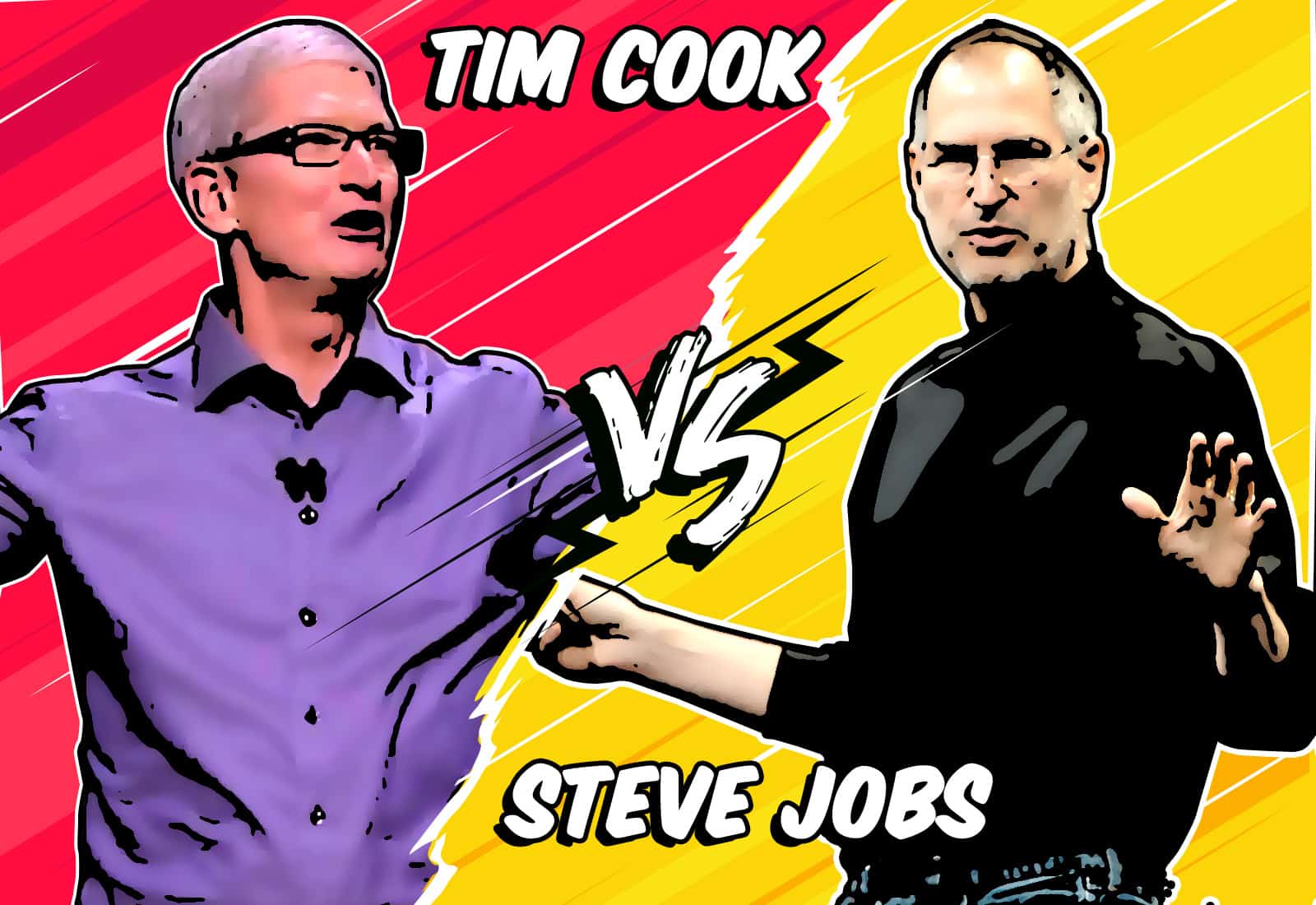Steve Jobs was a mercurial genius with a singular knack for turning bright ideas into shiny new products. Tim Cook is an operations wizard who hammered Apple’s supply chain into a manufacturing powerhouse.
If you’re an Apple fan, you know the widely accepted narrative. You’ve heard the stories about these powerful CEOs and their various strengths and weaknesses. But who helmed Apple most successfully?
We put Cupertino’s most capable execs head-to-head to determine which Apple era was really the best. Get ready to settle things once and for all!
Steve Jobs vs. Tim Cook
It’s easy to let nostalgia turn Jobs into something of a technological saint. But was his time at the top really better than Cook’s reign? After all, when Jobs served as Apple CEO, the two men worked side-by-side to turn the company into a juggernaut.
That didn’t stop critics from predicting doom when Jobs died in 2011 after handing over Apple’s reins to Cook. In fact, you sometimes still hear those sorts of fears, even as Apple chugs along as the world’s most powerful, and profitable, company.
Are Jobs fans just looking at Apple’s past through rose gold glasses? Here’s an honest evaluation of the two Apple CEOs’ accomplishments in nine key areas.
Round 1: Apple financial performance
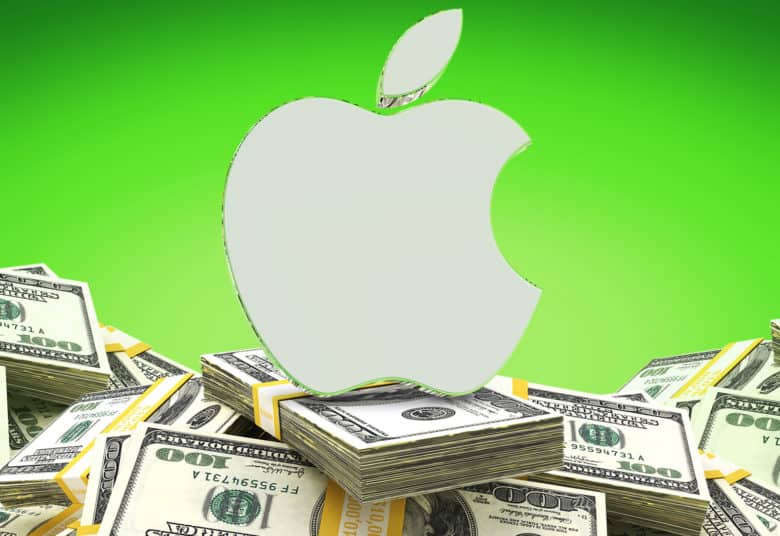
Image: Ste Smith/Cult of Mac
This really depends on how you measure it. If your question is, “Which CEO ran Apple when it hit its biggest valuation?” the answer is Tim Cook. If your question is, “Who multiplied Apple’s value the most?” the answer is unarguably Steve Jobs.
In 1996, Apple’s market cap sat at $3 billion. When Jobs departed as CEO 15 years later in 2011, Apple’s market cap stood at $347 billion. That’s an astonishing 116x increase in Apple’s stock market valuation.
Cook, meanwhile, took over a company valued at $347 billion in 2011. Under his steady hand, Apple hit $922 billion last month. (And may well hit $1 trillion this year.) That’s an increase of “just” 2.7x.
However, the conditions during each man’s tenure as Apple CEO are very, very different.
Jobs was the ultimate turnaround artist, and deserves every credit for it. Under Cook, Apple climbed to become the world’s most valuable company, and consistently defended that title.
With Cook at the helm, Cupertino has given back more money to shareholders, and seen higher highs. Apple doesn’t pin its success on short-term numbers like many other companies do. Still, if pressed, we give this one to …

Round 2: Apple scandals
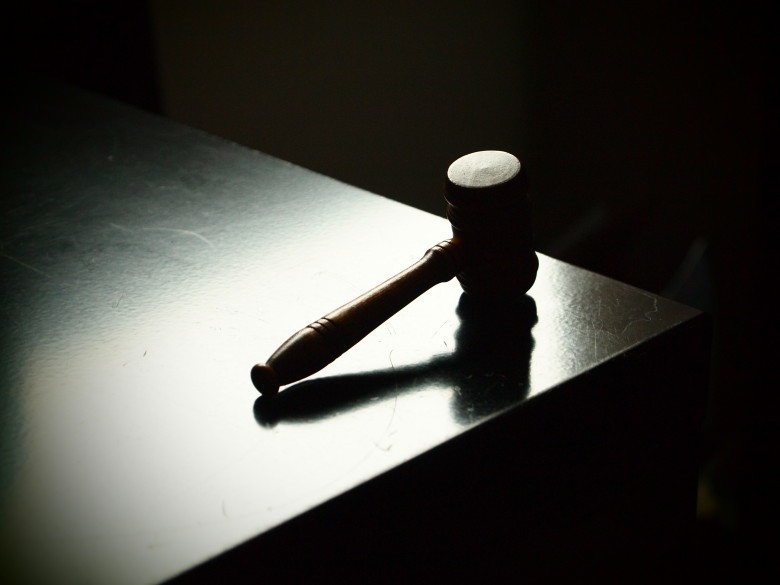
Photo: orangesparrow/Flickr CC
Who ran Apple with the fewest scandals? Neither Steve Jobs nor Tim Cook encountered disasters on the level of, say, Microsoft’s antitrust case or Facebook’s recently revealed data scandal. But both Apple CEOs contended with their own high-profile problems.
For Jobs, it was backdated stock options, a lost iPhone 4 prototype, the so-called Antennagate problem, concerns about Foxconn working conditions, and censorship in the App Store.
For Cook, scandals have included the disastrous Apple Maps launch, the divisive FBI standoff over privacy, the iPhone 6 Plus’ “Bendgate,” ongoing allegations of tax avoidance, and, most recently, the controversial practice of iPhone throttling.
Of these, Cook’s prove less significant than Jobs’. Apple’s insistence on user privacy in the FBI showdown did the company good over time. Throttling performance of older iPhones with compromised batteries was actually a smart user feature, even if Apple made a mistake by not being more transparent about it. Again, Cook’s “scandals” look less significant than Jobs’.

Round 3: Apple’s social good
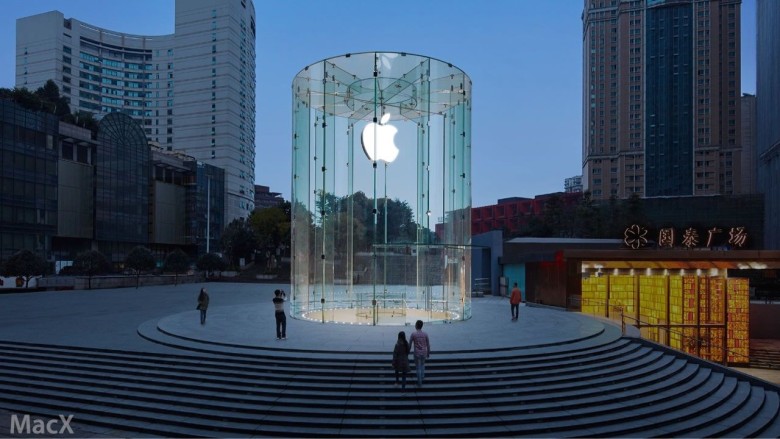
Photo: Apple
This one depends on whether you think a company should commit to making the world a better place. Here in the social media-driven 2018, with Apple more valuable (and therefore susceptible to regulation) than ever, this is a “must do.” Steve Jobs was never big into charity, or environmental issues, or human rights subjects.
While Apple dabbled in all of these, it wasn’t until Tim Cook’s reign that they became a prominent part of Apple’s identity. Cook has spoken out about privacy, gay rights, and immigration reform. He’s also driven Apple to become a 100 percent sustainable energy-powered company, worked to improve conditions in the supply chain, and led the way in terms of accessibility for users with disabilities.
Yes, the whole “right to repair” issue is still troublesome, but Cook has embraced the idea that Apple should make the planet a better place. And that’s pretty admirable.

Round 4: Apple advertising
Tim Cook’s Apple regularly delivers great ads. But Steve Jobs blinded us with marketing brilliance.
“Think Different” was a masterstroke that arrived at a time when Apple didn’t yet have any new products to sell. The “Get a Mac” campaign remains heavily referenced by fans, even a decade after it finished. And what about the iPod and iTunes campaign, featuring silhouettes dancing on a plain background? And the memorable “Switch” campaign directed by Errol Morris?
Apple still produces highly polished marketing (its Christmas ads remain a highlight). However, very few ads under Cook’s watch ascend into iconic territory.

Round 5: Challenges as Apple CEO
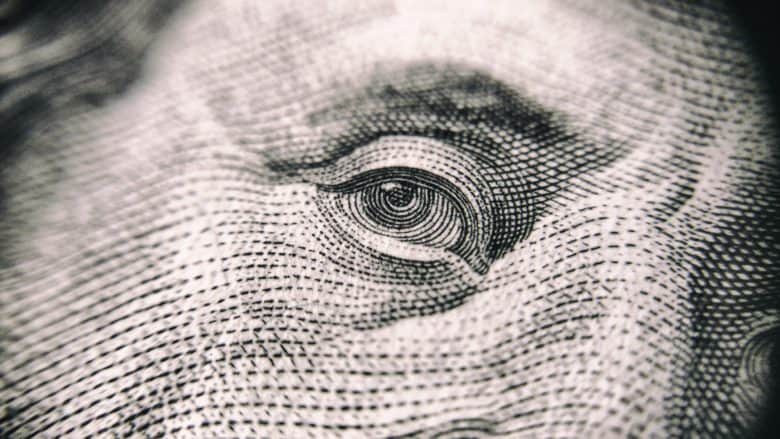
Photo: Vladislav Reshetnyak/Pexels CC
Just how close Apple was to bankruptcy when Steve Jobs returned remains an open question. But things weren’t looking good. After a few disastrous years, the company was hemorrhaging money. Everything about its business model seemed wrong. (Check out this old Wired cover story for proof!).
Jobs, meanwhile, was exiting a period of his life also marked by failure. Sure, Pixar turned him into a billionaire. But both NeXT and Pixar failed as hardware companies before Jobs reimagined them as something else. His arrival at Apple excited loyalists, but hardly seemed like an obvious turnaround point.
Tim Cook took over Apple under very different circumstances, but he still faced plenty of doubts. Although he had run Apple twice before (during Jobs’ medical absences), many people still wondered if he was up to the task. Analysts lined up to point out how companies like Disney, Sony and Polaroid struggled after the deaths of visionary founders.
Ultimately, Jobs faced the larger challenge. And he succeeded in spectacular fashion, bringing Apple back from the brink.

Round 6: Biggest new Apple products

Photos: Apple, Ste Smith/Cult of Mac
Apple continuous to releas beautiful new products under Tim Cook’s leadership. The iPhone X, with its OLED edge-to-edge display, changed what an iPhone looked like. It even removed the instantly recognizable home button to show us that nothing is sacred when it comes to embracing the future. The Apple Watch, the first new major line invented under Cook’s leadership, quickly became the world’s most popular watch.
Then there are the amazing AirPods, the versatile Apple Pencil (which showed us Jobs had been wrong about styluses), and the technically brilliant HomePod. Oh, and pumping out various display sizes to give us Plus-size phablets, iPad minis and iPad Pros has been another stroke of brilliance. As don’t forget Apple’s booming Services division, led by Apple Music and its 40 million-plus paying subscribers.
But compared to Jobs? Over 15 years, Jobs brought us the colorful iMac G3, the sunflower-inspired iMac G4, and the slab-of-aluminum iMac design Apple continues to use. There was the colorful iBook and its white successor, and the ultra-thin MacBook Air. Not enough? We also got the iPod and its follow-ups, plus the revolutionary iTunes Store, the iPhone and App Store, and finally the iPad.
Under Cook, Apple maintains rigid quality control over its products, and releases some gorgeous devices. But Apple never had a higher percentage of “must own at any cost” products than under Jobs.

Round 7: Apple failures
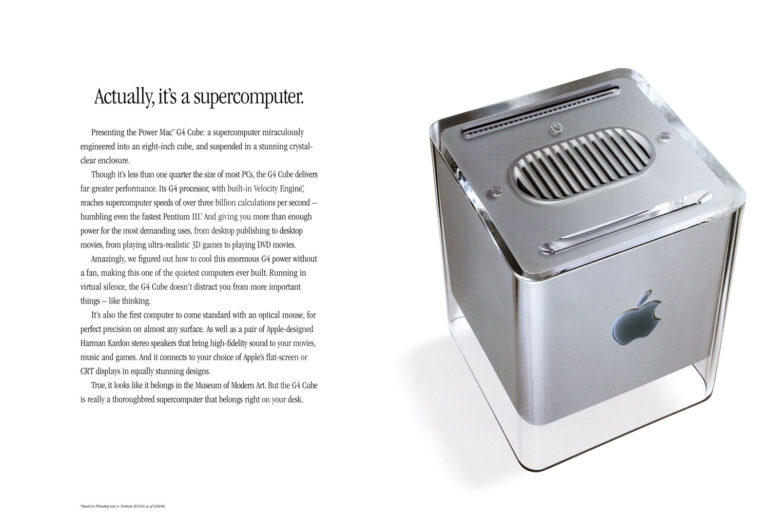
Photo: Apple
Nobody can hit a home run every time. The weird thing about Apple is that even its failures can be gorgeous. Nonetheless, both Steve Jobs and Tim Cook oversaw some commercial and creative duds in terms of Apple hardware and software.
Jobs had the Twentieth Anniversary Macintosh, the iMac G3’s “hockey puck” mouse, the G4 Cube, the iPod Hi-Fi, the ROKR phone with Motorola, MobileMe, and the Ping social network.
Tim Cook’s reign brought the initially terrible Apple Maps, the disappointing Siri, the criticized U2 album giveaway, the bulky iPhone Smart Battery Case, the unloved MacBook Pro with Touch Bar, and the (possibly unsuccessful) HomePod.
Interestingly, Jobs endured more notable failures — but enjoyed more big successes, too. Cook terms to play it conservatively when it comes to new Apple products. Chief criticisms in reviews these days typically go like this: “Yeah, it’s as beautiful as ever, but it doesn’t change things significantly.”
Jobs, on the other hand, took risks. His approach resulted in bigger, higher-profile failures. Let’s chalk this one up as a draw!

Round 8: Apple rivals

Photo: geralt/Pixabay CC
Who faced stronger rivals? When Steve Jobs came back to Apple in 1996, Microsoft was at the top of its game. As Redmond declined in the early 2000s, Google rose to prominence. Between them, the two companies challenged Apple’s hardware-oriented strategy by developing operating systems that could be used on whichever third-party machines wanted them.
In both cases, Apple held its own against two of the biggest industry giants the world has ever seen.
Today, Apple’s biggest challenge comes from its frenemy Samsung. However, the sheer number of enemies that Apple must contend with today gives Cook the edge. Overseas, dozens of low-cost Android OEMs threaten to chip away at iPhone sales, especially in all-important emerging markets.
In the United States, the fact that other companies like Amazon, Facebook, Google and, yes, Microsoft are getting into the hardware game makes the space more competitive than ever. Apple showed the way. Now it must fight harder than ever to maintain its position at the head of the pack.

Round 9: Apple keynotes
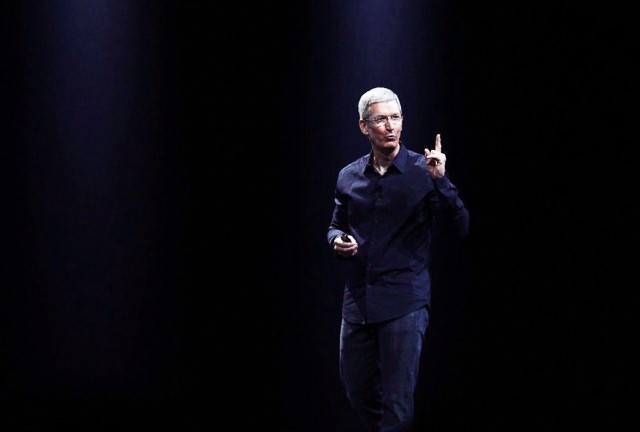
Photo: Roberto Baldwin/The Next Web
How exciting an Apple event is ultimately comes down to which products the company unveils. But it’s not just that. Steve Jobs was never in his element more than when he was stalking an Apple stage, hands steepled, telling us why buying a new computer would change our lives.
His keynotes were unmatched anywhere else in tech. They turned what would otherwise be a reasonably mundane event into gripping high art. Tim Cook, by comparison, keeps getting better at delivering these events. Apple keynotes still boast musical performances from big names, slick presentations, enthusiastic crowds and the promise of “one more thing.” But they don’t have Steve.
This might not seem like the fairest way of measuring a CEO’s performance. After all, you’re there to run a tech company, not perform like an actor. But there’s no doubting that Jobs’ keynotes played a part in building the Apple brand. He’s got the definite edge in this department.

Round 10: Apple’s overall stability
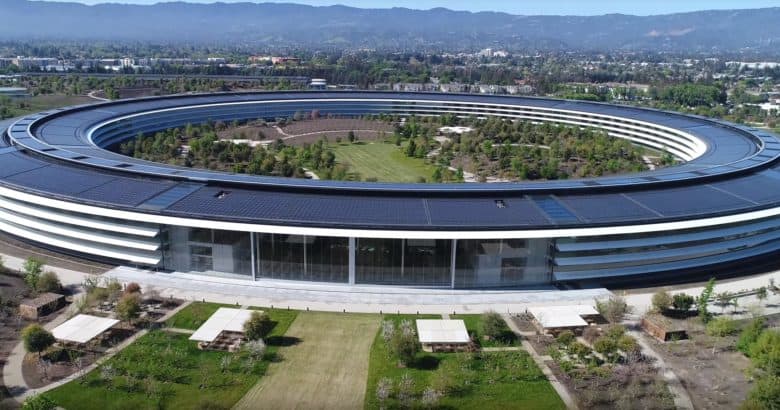
Photo: Duncan Sinfield
Apple has never been more exciting than in the last years of the 1990s and first years of the 2000s. You know why? Because the company literally bet the house on its new products.
As Steve Jobs acknowledged, a strategy of high-margin wannabe-superstar products worked well so long as you could keep delivering them. His genius was that he managed to do that. But Apple also suffered when it made missteps. Today, Apple remains reliant on the iPhone as its main earner, but its valuation isn’t solely based on one product. Apple is hedging its bets, and the growth of new areas like Services mean it is no longer just “the iPhone company.”
Thanks to Cook’s operational wizardry, Apple benefits from an amazing supply chain, an enormous network of Apple Store distribution centers, and the ability to control almost every element of its narrative. Stability can mean a lack of excitement, but the continually climbing stock price shows that investors remain keen to get on the Cupertino train.
And with its enormous cash pile, Apple can afford to play the long game in a way it never could before.

Steve Jobs vs. Tim Cook: The results
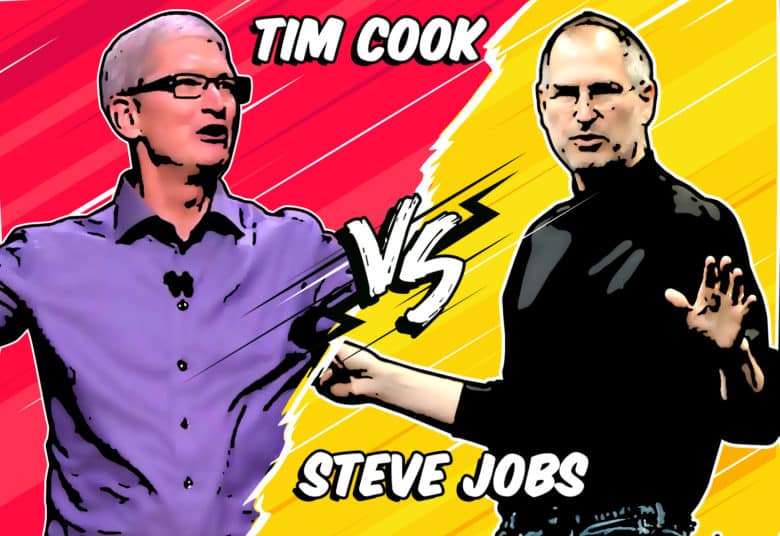
Image: Ste Smith/Cult of Mac
Overall, Tim Cook squeaks out a win with five points and one tie, compared to Steve Jobs’ four points and one tie. The real victors, though, are Apple fans. Separating Cook’s contribution to Apple from Jobs’ proves immensely difficult.
Cook transformed Apple’s operational abilities while Jobs ran Apple (and even took over for him during medical absences). Jobs, meanwhile, laid out the model and the product lines that drive Apple to greater heights than ever under Cook’s leadership.
Jobs was the perfect leader for Apple when it was struggling back to the top in the 1990s, and to make it a world-beating giant this century. Cook is perhaps a better “peacetime” general, though. His Apple is more stable, with less of the unpredictability that made the Jobs era so exciting (and, at times, downright nerve-racking)you.
What do you think? Do you have a favorite era in Apple history? Let us know in the comments below.
